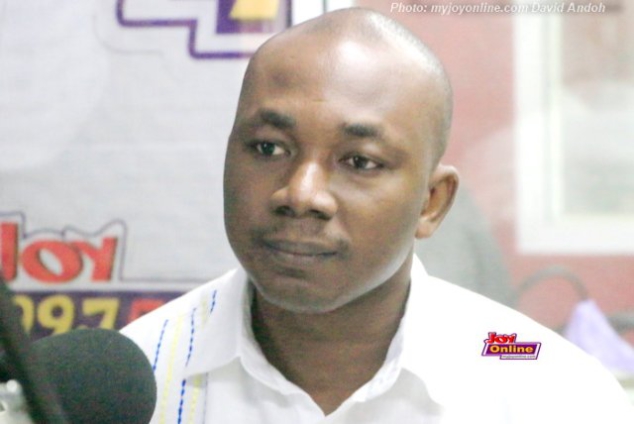Economist, Professor Godfred Bokpin says for the country's economy to grow, businesses should be allowed to thrive regardless of which regime is in power.
He believes businesses and business owners linked to opposition political parties must not be targeted.
His assertion follows comments made by the Minority in Parliament that the government had engaged in the banking sector clean up to collapse banks and microfinance institutions linked to the National Democratic Congress (NDC).
Already, the NDC 2024 Flagbearer, former President John Dramani Mahama has promised that the next National Democratic Congress (NDC) administration will restore the licences of banks whose authorizations were “unjustly” revoked by the central bank.
But speaking on JoyNews' Newsfile on Saturday, Professor Bokpin said the details that came to light after the exercise such as the NDC's affiliation to the alleged targeted and collapsed institutions are worrying.
“I think we should all be bold enough to say we shouldn’t have gone that way; that businesses should be allowed to thrive regardless of which regime is in power. I think that that is very clear,” he said.
The Economist however insists the clean up exercise was necessary.
“I had held the view before, and I still stand by that that the financial sector cleanup was necessary. And I’ve maintained even on this platform before that the vulnerabilities that crystallised towards the end of 2016 running to 2017 which occasioned the financial sector cleanup had started way back towards the end of 2011, the data is clear, non-performing loans and all of that.
“We had maintained that the first asset quality review that was done in 2015, clearly had indicated vulnerabilities in the financial sector. The decisive responsiveness didn’t come the way they should. You can go through the IMF supported programmes, the 16th IMF supported programme from April 3rd, 2015 to April, 2019. That is clear.
“So we were of the view, and I supported the central bank that a certain level of cleanup needed to be done in order to reposition the financial sector to make it a bit more robust to support economic growth,” he explained.
Background
Finance Minister, Ken Ofori-Atta supervised the banking sector clean-up from mid-2017 to January 2020. The clean-up saw a reduction in the number of banks from 34 to 23, whilst 347 microfinance institutions, 15 savings and loans and eight finance houses had their licences revoked.
A number of the institutions that had the licences revoked were found to have varying degrees of corporate governance lapses. The total estimated cost of the state’s fiscal intervention, excluding interest payments, from 2017 to 2019 was pegged at GH¢16.4 billion.
However, the government in 2020 claimed that it spent about GH¢21 billion on the banking clean-up exercise.
Latest Stories
-
Director urges parents to protect children from abuse
12 mins -
Imani-Ghana criticises Akufo-Addo for not lauding Fourth Estate’s contribution to social development
19 mins -
Man remanded for allegedly stabbing businessman with broken bottle and screwdriver
44 mins -
Population in Kumasi Central Prison surges to 1800, threefold exceeding capacity
54 mins -
NPP to conduct La Dadekotopon parliamentary primary today
54 mins -
KPMG’s report on GRA and SML deal, government white paper on report and matters arising
54 mins -
I won’t reply to Chris Brown tour criticism – Ayra Star
57 mins -
British Columbia to back off drug decriminalisation project
1 hour -
Veteran commentator Joe Lartey Sr dies at 96
1 hour -
Livestream: Newsfile discusses KPMG report on SML deal, ILO on SSNIT reserves and NDC’s running mate
2 hours -
Ghanaian activist hugs over 1,100 trees in an hour to set Guinness World Records
2 hours -
Mathew Anim Cudjoe’s Dundee United promoted to Scottish Premiership after Championship win
2 hours -
NSMQ star Jochebed Adwoa Sutherland sweeps 12 awards at UG Vice-Chancellor’s Ceremony
2 hours -
Ghana’s Education Quality ranked 125 out of 183 countries in latest Global Youth Development Index
3 hours -
Emma Stone wants people to use her real first name
3 hours

